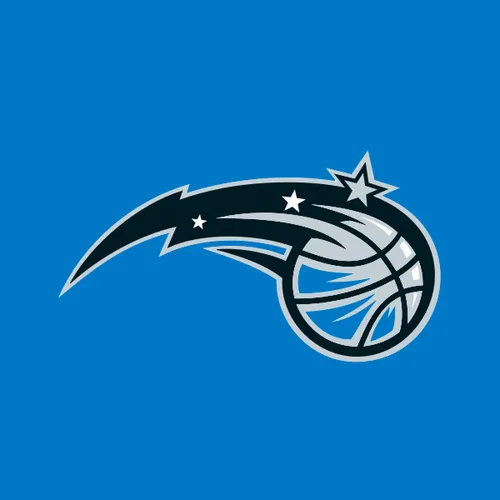







Sports Science Jobs in the Sports Industry: A Quick Guide
Introduction
Sports science professionals play a crucial role in the sports industry, utilizing their expertise to enhance athletes' performance, prevent injuries, and optimize overall health. This comprehensive guide will delve into the different aspects of sports science jobs, including roles, types of jobs, salary expectations, and essential skills. Read on for valuable tips on how to secure a position in this exciting field.
The Role of Sports Science Professionals in the Sports Industry
Sports science professionals apply scientific knowledge to help athletes achieve their maximum potential while maintaining optimal health. They collaborate with athletes, coaches, and trainers to devise customized strategies that enhance performance, prevent injuries, and improve overall well-being. Their work often involves conducting research, analyzing data, and staying informed about the latest developments in sports science and medicine. Sports science professionals also contribute to the development of new training techniques, recovery protocols, and injury prevention strategies, which can significantly impact athletes' careers and the overall success of sports organizations.
The Types of Sports Science Jobs Available in the Sports Industry
The sports industry offers a diverse range of sports science jobs, including but not limited to:
Exercise Physiologist: Specializes in understanding the body's response to exercise and designing effective training programs based on individual needs.
Biomechanist: Analyzes the mechanics of human movement to optimize athletic performance and minimize injury risk.
Strength and Conditioning Coach: Develops and implements strength, speed, agility, and endurance training programs for athletes.
Sports Nutritionist: Advises athletes on nutritional strategies to support their training, performance, and recovery.
Sports Psychologist: Assists athletes in developing mental strategies to cope with the demands of competition and improve their overall performance.
The Salaries on Offer
Salaries in the sports science sector are influenced by factors such as experience, qualifications, location, and the specific organization. Entry-level professionals can expect to earn around $30,000 to $40,000 per year. Junior-level positions typically range from $40,000 to $60,000. Intermediate-level sports scientists may earn between $60,000 and $80,000, and senior-level professionals can earn upwards of $100,000 per year. It is essential to note that salaries may vary significantly depending on the specific job and employer, with some positions offering lucrative opportunities in professional sports organizations.
The Essential Skills Needed to Succeed in Sports Science in the Sports Industry
To thrive in sports science, individuals require a robust foundation in various disciplines, including physiology, biomechanics, nutrition, and psychology. Essential skills for success include:
Analytical thinking: Ability to analyze complex data sets and draw meaningful conclusions to inform athlete performance strategies.
Communication: Effective communication with athletes, coaches, and other team members to share insights, recommendations, and progress updates.
Problem-solving: Identifying performance issues, injury risks, and other challenges, and developing evidence-based solutions.
Interpersonal skills: Building rapport with athletes and colleagues, fostering trust and understanding their unique needs and goals.
Adaptability: Staying current with the latest advancements in sports science and integrating new techniques and technologies into your practice.
Tips for Landing a Sports Science Job in the Sports Industry
To secure a sports science job in the sports industry, consider these tips:
Obtain relevant qualifications: Pursue a bachelor's or master's degree in sports science, exercise physiology, kinesiology, or a related field. Additional certifications, such as strength and conditioning, sports nutrition, or sports psychology, can also enhance your marketability.
Gain experience via Rebound: Intern with sports teams, fitness centers, or sports medicine clinics to acquire practical experience and demonstrate your commitment to the field. This hands-on experience can help you develop essential skills and expand your professional network.
Network: Attend industry conferences, workshops, and seminars to connect with professionals in the sports science sector. Networking can help you learn about job opportunities, gain insights into the industry, and establish valuable connections.
Create a strong resume and cover letter: Highlight your education, relevant experience, certifications, and achievements. Tailor your resume and cover letter to the specific requirements of each job application, emphasizing your strengths and suitability for the role.
Prepare for interviews: Research the organization and understand its goals, values, and work culture. Be prepared to discuss your experiences, skills, and how they align with the job requirements. Provide examples of how you have successfully applied sports science principles in practice.
Stay current with industry developments: Regularly read sports science journals, attend conferences, and participate in continuing education courses to stay informed about the latest research and advancements in the field. This commitment to ongoing learning can make you an attractive candidate to potential employers.
Leverage social media and online platforms: Create a professional online presence on platforms like LinkedIn to showcase your expertise, accomplishments, and connections. Join relevant sports science groups and forums to engage in discussions and share your insights.
Conclusion
A career in sports science offers a unique opportunity to blend your passion for sports with your scientific expertise. By understanding the roles and responsibilities of sports science professionals, the various types of jobs available, salary expectations, and the skills required to excel in this field, you'll be well-prepared to pursue a rewarding career in the sports industry. Follow these tips to stand out in the competitive job market and land your dream sports science job.



























